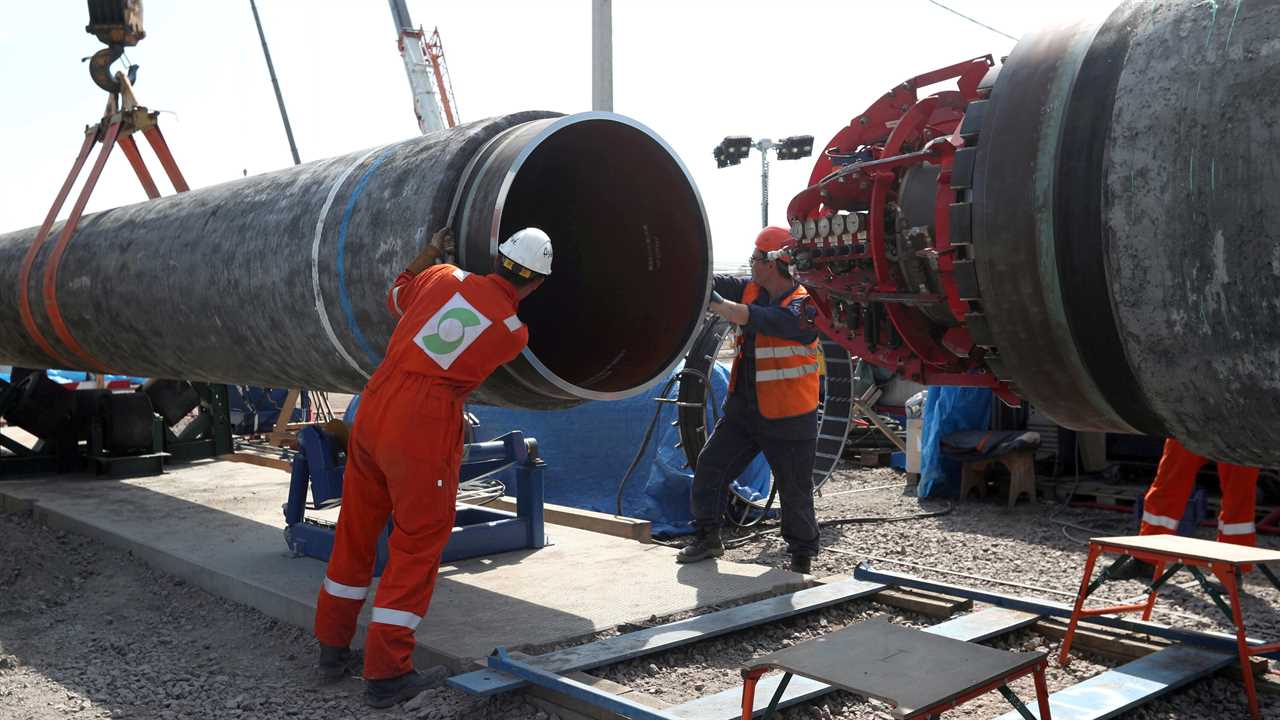
The Biden administration announced on Tuesday that it was working with gas and crude oil suppliers from the Middle East, North Africa and Asia to bolster supplies to Europe in the coming weeks, in an effort to blunt the threat that Russia could cut off fuel shipments in the escalating conflict over Ukraine.
European allies have been cautious in public about how far they would go in placing severe sanctions on Moscow if it invades Ukraine. Germany has been especially wary; it has shuttered many of its nuclear plants, increasing its dependence on natural gas imports to generate electricity.
Many European officials have said they suspect President Vladimir V. Putin of Russia instigated the current crisis in the depths of winter for a reason, calculating that he has more leverage if he can threaten to turn off Russian fuel sales to Europe.
So in recent weeks, American officials have been planning an effort that has echoes of the Berlin airlift, the attempt to keep West Berlin supplied in the face of a Soviet blockade in 1948 and 1949. That event led to the creation of NATO, the defensive alliance that Mr. Putin is hoping to undercut by massing troops along the Ukrainian border, and by demanding that NATO pull back from what he has called Russia’s “sphere of influence.”
American officials have been scrambling to find additional alternative energy supplies — particularly of natural gas. It is an effort to pre-empt what U.S. officials believe will be one of Mr. Putin’s key strategies: cutting off gas supplies to European markets unless they break with the sanctions that the United States and other allies have threatened if Russia invades Ukraine.
The theory is that, once they are reassured about energy supplies, European allies will be far more willing to sever Russian financial institutions from the international banking system, and to join in new export controls that would bar Russian manufacturers from receiving semiconductors and other key parts that are based on American designs.
Mr. Putin’s easiest move would be to further cut gas supplies from pipelines that run through Ukraine. In recent months, to pressure the Ukrainian government, Russia has already reduced supplies flowing through Ukraine to Europe by about 50 percent.
That is the supply most at risk if a conflict begins. But American officials provided no estimates of how much of that daily flow of gas they believe they can replace though other routes.
And clearly by announcing the effort — but not the specific sources of alternative supply — U.S. officials are trying to deter Russia from acting. This is the same strategy that led the United States to reveal that it had evidence that Mr. Putin intended to stage a “false flag” attack that could provide a pretext for invasion, and that led Britain to declare that Russia was seeking to replace the current Ukrainian leadership with a puppet government.
Russia provides about one-third of the gas and crude oil imported by the European Union. Last year, Russia provided about 128 billion cubic meters of gas to Europe, according to industry estimates, and about a third of that flowed through Ukrainian territory.
Russia has reduced that flow this winter, and its effort to open the Nord Stream 2 pipeline, connecting Siberia to Germany, would give it a way to route all of its gas around Ukraine, crippling a key source of revenue for the Ukrainian government while increasing European dependency on Russian supply.
The initiative to get fuel from alternative sources flowing to Europe now, before a true crisis erupts, was described by Biden administration officials as a key element in assuring allies that they will be able to weather any cutoff of supply from Russia. And they argue that Russia’s huge dependency on its oil and gas sales — which accounts for more than a third of the country’s gross domestic product and much of the government’s revenue — creates a vulnerability in Moscow that the Western allies can exploit.
“If Russia decides to weaponize its supply of natural gas or crude oil,’’ a senior administration official told reporters in a call on Tuesday morning, “it wouldn’t be without consequences to the Russian economy. Remember, this is a one-dimensional economy, and that means it needs oil and gas revenues at least as much as Europe needs its energy supply.”






